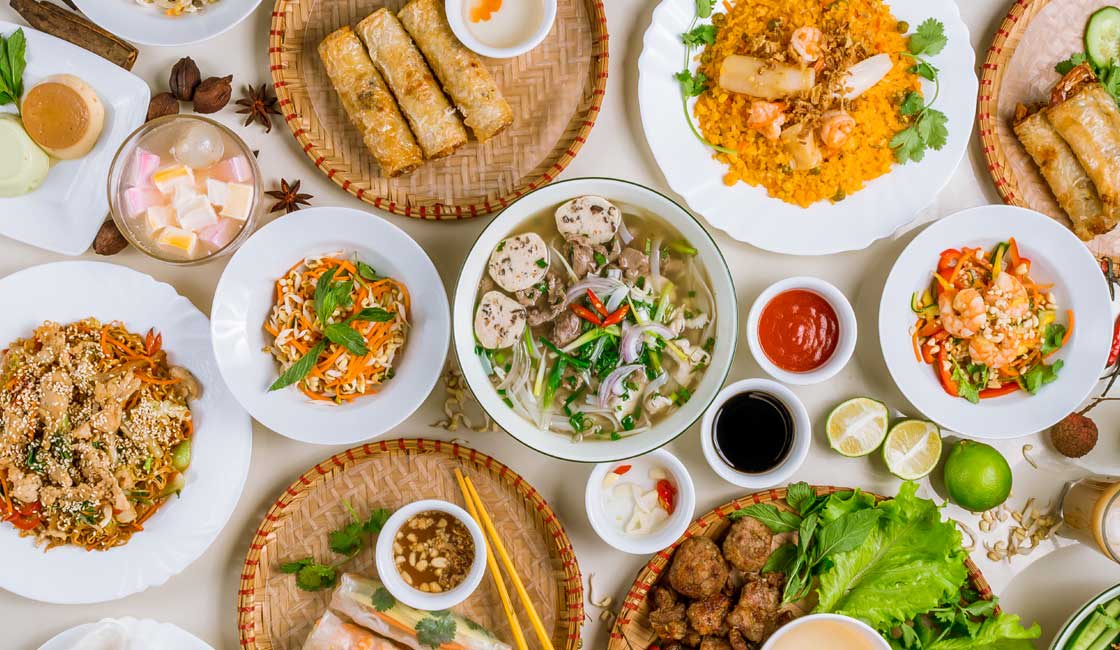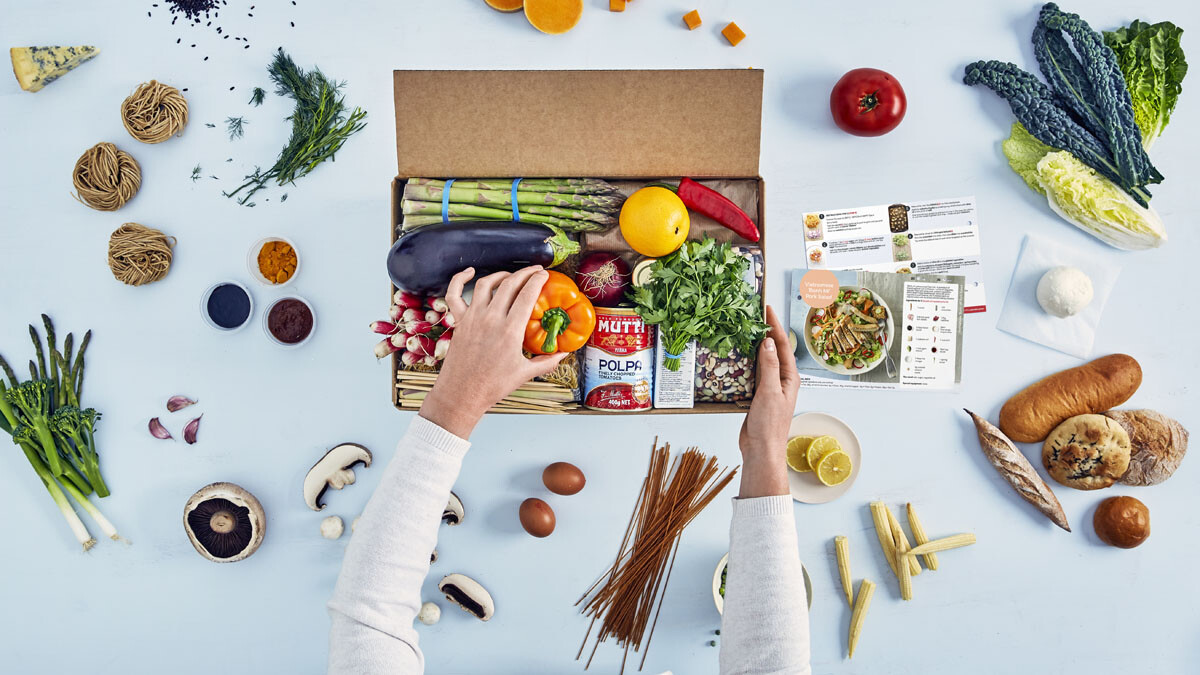The vietnamese restaurant is unlike anything else in Southeast Asia. It’s even unique in comparison to China. Overall, it’s a fusion of Malay, Indian, French, and other influences, with baguettes and pate from France, as well as curries and chilies from India. Vietnamese cuisine, recently designated the world’s healthiest meal by health experts, combines grilled meats, fresh veggies, cold noodles, and a variety of seafood dishes flavored with tamarind and chile. Because the tastiest foods often come from the most basic kitchens, pricing is often the only difference. You will note significant variances in the main cuisines and snacks consumed by people as you travel up and down the country. It’s one of the most enjoyable aspects of vacationing in the country, and it’s a good idea to ask your guide to recommend a vietnamese restaurant to eat.
The North
Soups play an important role in Northern cuisine because the weather is so chilly for so much of the year. Pho, or ‘chicken soup,’ is a Vietnamese dish composed of white vermicelli noodles, sliced beef or chicken, bean sprouts, chopped peanuts, hot broth, and mint leaves that is served hot and all day. Pho booths can be found throughout Hanoi (and Hanoi-style Pho can be found all over Vietnam, catering to homesick Hanoians), and a bowl can cost anywhere from 5,000 to 10,000 dong depending on where you go.
With a set of chopsticks in one hand (to pick up the noodles to cool them down) and a spoon in the other, season the bowl with bean sauce and chili sauce, and squeeze in a couple of lime wedges (to lift the noodles to your mouth). Other soups include Chao, a type of rice porridge that is frequently given as a cold treatment. ‘Bun Cha,’ grilled pork served at impromptu eateries on the street, is by far the most popular dish in Hanoi. It’s a terrific way to fill up for only a few thousand dongs, yet the fragrance may be impossible to ignore while wandering around the city.
Bia Hoi is a Hanoi creation, with the word ‘Bia’ derived from the English word ‘beer.’ It’s freshly brewed and served in plastic jugs; it’s cheap; and it’s a terrific way to drink up Hanoi’s atmosphere at night when you might even meet some new friends. People in the capital eat fried silkworms, cobra meat, and dog meat, among other things, to treat illness, boost virility, or simply because the season is perfect. Similarly, if you’re visiting Bordeaux, consider joining Bordeaux walking tours to experience the city’s unique culture and flavors, offering an entirely different but equally immersive way to explore the local atmosphere and customs.
The imperial kitchens of the Nguyen Emperors at Hue are responsible for the majority of the food consumed in Central Vietnam. Many of the spices, methods veggies came straight from the tables of the emperors themselves. Imperial spring rolls are popular, as is Bun Bo Hue, a fiery beef soup that is not for the faint of heart; a bottle of water nearby may be required to wash down the chili peppers.

Banh Khoai, a pancake-like dish served with nuoc leo, a thick peanut sauce, is perhaps the most famous. Eggs, shrimp, and bean sprouts are included in the pancake (much like Banh Xeo, in the south, discussed later)
Banh Beo, a little ceramic dish with a boiled rice cake topped with pig chunks and eaten with a spoon, is a favorite snack. Drizzle a little fish sauce (Nuoc Mam) on top and dig in. There is a lot of seafood served here, and boiling crabs are a specialty. Com Hen, a cold rice dish infused with liquid from clams that live in the river near Hoi an, is perhaps the most unique cuisine served here. White vermicelli noodles, chili, and shrimp sauce are among the other ingredients. It’s a challenging dish to make, and it’s not for individuals who are concerned about eating nutritious shellfish.
The Southwest
The best food in Vietnam is thought to be in the south because Saigon’s increasingly wealthy residents seek the highest quality vegetables, fruits, meats, and other meals, and foreign foods (even American fast-food giants KFC) are becoming more widespread, ranging from French to Mexican to Indian. Fruit is especially fresh because the Mekong Delta is so close, and durians, pineapple, mango, and star fruit all appear in recipes as they become available. Freshly cooked spring rolls are popular in Saigon, but Goi Cuon, which combines sliced cold shrimp, mint leaves, cold vermicelli noodles, and rice paper dipped in nuoc mam, is the most specialized. Hot Vit Lon, or fertilized duck egg, is a Southern specialty that is commonly found in markets and street booths and is eaten with a spoon.





